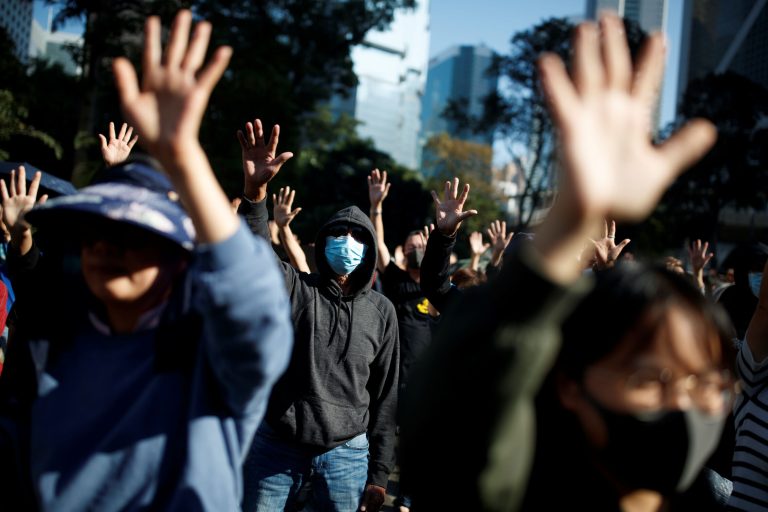A recent survey of Chinese submarine crews deployed to the South China Sea shows that 21 percent of the sailors suffer from psychological problems. The rare study points to a worrying trend in the Chinese navy, which has ramped up operations in recent months.
The study was conducted by Shanghai’s Navy Military Medical University, and published in the British journal “Military Medicine.” Surveying 580 male crew members. Most of the psychological symptoms they reported had to do with anxiety and paranoia.
According to the study, the main cause for the submariners’ widespread unease is the fact that the Chinese navy has been conducting large numbers of military exercises in the South China Sea. Another factor is that the Chinese navy lacks sufficient psychological health services.
During operations, nuclear-powered submarines can remain submerged for 60 to 90 days. The naval university’s report said that previous studies on submariners “have demonstrated that military maneuvers can produce psychological and physiological stress.” Remaining underwater in a confined area for such a long time worsens feelings of depression and isolation among crewmen.
Frequent maneuvers
Lee Zhen-shou (李正修), a researcher at Taiwan’s National Policy Foundation, told Radio Free Asia that the Chinese submariners are probably overworked. Lee mentioned that the US Navy has different fleets taking turns performing operations so that officers and sailors have the opportunity to spend more time ashore.
Success
You are now signed up for our newsletter
Success
Check your email to complete sign up
However, the Chinese People’s Liberation Army (PLA) Navy has been conducting frequent and prolonged operations in the South China Sea, especially since last July. In August alone, the PLA Navy held at least 10 naval exercises along the Chinese coast and in the South China Sea.

Communist China has disputes with multiple other countries in the South and East China seas. It claims almost all of the South China Sea, which is a key shipping route and contains vast oil reserves. In the east, it claims the island of Taiwan and the Senkaku Islands, which belong to Japan.
Starting Dec. 29 and lasting to Jan. 7, the PLA Navy held training exercises south of Hainan Province. Soon after that, it conducted another 3-day drill in the South China Sea. Before that, the navy undertook similar operations in September and November.
The PLA Navy has more than 60 submarines of various types assigned to three naval groups in the north, east, and south. Most of the submarines are older diesel-powered vessels. They can only stay underwater for a few days and are easily detected by sonar.
However, China also has 15 nuclear-powered submarines, seven of which can launch ballistic missiles. Their capabilities lag behind those of the US and Russian navies, but Chinese technology is improving. In early February, satellite images showed what appears to be a new class of nuclear attack submarine under construction in northeastern China.
China’s nuclear submarines are mostly based in Qingdao of eastern China, as well as the southern island province of Hainan. The PLA Navy is building an underground base near the city of Sanya in Hainan that can reportedly dock 20 submarines.
Psychological health
But no matter what kind of hardware a navy has, psychological health is critical for sailors operating submarines. Last year, the People’s Liberation Army Daily did something rare: it published articles on naval psychological counseling three times over the course of the year. This gives the public some insight into the challenges the Chinese navy faces.
Dr. Lin Ying-yu (林穎右), a Taiwanese military expert who studies the PLA, told Radio Free Asia about the differences between psychological counselling in the PLA Navy versus the US Navy. The US Navy has priests onboard its submarines, who can give spiritual guidance and support for crewmen.
By contrast, the Chinese Communist Party (CCP) stations political officers on board the PLA Navy’s vessels; their main job is to indoctrinate the sailors in Marxism and make sure they do not think the wrong thoughts.
Political correctness is a severe burden on the PLA. The Chinese military is not a national army, but the military wing of the Communist Party. To keep servicemen in line, it spends a lot of time and energy on political education. This education is often boring and demoralizing, and it wastes time that Chinese military personnel could be spending on developing team spirit and training. According to Lin, the frequency of political training and gatherings under the PLA will only drag down the officers and sailors serving on Chinese warships.
Follow us on Twitter or subscribe to our email list














